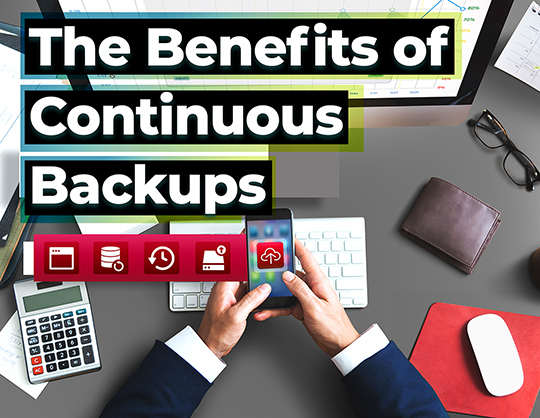In today's world, data is an essential part of our lives. From personal information to work-related documents, we rely on data every day. Losing data can be a nightmare, and it can happen in various ways, such as hardware failure, accidental deletion, or cyberattacks. This is where backups come into play. Backups are an essential part of any data management strategy, and continuous backups offer several benefits that go beyond traditional backups.
-
Enhanced Data Protection
Continuous backups offer enhanced data protection by frequently creating backup copies of your data. Unlike traditional backups, which only occur at specific intervals, continuous backups take place in real-time or at frequent intervals. This means that if you lose data, you can easily restore it to a previous version, reducing the risk of data loss. Additionally, continuous backups can help protect against ransomware attacks. If your system is infected with ransomware, you can restore your data from a backup taken before the attack, eliminating the need to pay the ransom.
-
Improved Productivity
Continuous backups can improve productivity by eliminating the need for manual backups. With traditional backups, you have to remember to back up your data at specific intervals, which can be time-consuming and prone to human error. With continuous backups, the process is automated, and you don't have to worry about remembering to back up your data. This frees up time that can be used for more productive tasks, such as focusing on core business activities.
-
Increased Data Availability
Continuous backups increase data availability by providing access to previous versions of data. This is particularly useful in situations where you accidentally delete a file or make changes that you later regret. With continuous backups, you can quickly restore a previous version of the file, eliminating the need to recreate the file from scratch. Additionally, continuous backups can help reduce downtime in the event of a disaster by providing access to up-to-date data.
Continuous backups offer several benefits that go beyond traditional backups. They enhance data protection, improve productivity, and increase data availability. As data becomes increasingly critical, continuous backups are becoming more important. By implementing continuous backups, you can protect yourself from data loss and ensure that your data is always available when you need it. Start your continuous backups.
